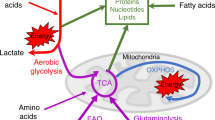Abstract
It is well recognized that zinc is an essential trace element, influencing growth and affecting the development and integrity of the immune system. Research has begun to clarify the molecular mechanisms underlying the action of zinc on the immune function. It is clear that this trace element has a broad impact on key immunity mediators, such as enzymes, thymic peptides and cytokines, explaining the paramount importance of zinc's status on the regulation of lymphoid cell activation, proliferation and apoptosis. Ongoing and future studies regarding the immunological status of zinc deficiency ‘at risk’ groups could lead to public health interventions with nutritional doses of zinc supplements to prevent alteration of the immune system and improve resistance to infections.
This is a preview of subscription content, access via your institution
Access options
Subscribe to this journal
Receive 12 print issues and online access
$259.00 per year
only $21.58 per issue
Buy this article
- Purchase on Springer Link
- Instant access to full article PDF
Prices may be subject to local taxes which are calculated during checkout
Similar content being viewed by others
Author information
Authors and Affiliations
Corresponding author
Rights and permissions
About this article
Cite this article
Dardenne, M. Zinc and immune function. Eur J Clin Nutr 56 (Suppl 3), S20–S23 (2002). https://doi.org/10.1038/sj.ejcn.1601479
Published:
Issue Date:
DOI: https://doi.org/10.1038/sj.ejcn.1601479
Keywords
This article is cited by
-
Glioblastoma multiforme influence on the elemental homeostasis of the distant organs: the results of inter-comparison study carried out with TXRF method
Scientific Reports (2024)
-
Myco-fabricated ZnO nanoparticles ameliorate neurotoxicity in mice model of Alzheimer’s disease via acetylcholinesterase inhibition and oxidative stress reduction
BioMetals (2023)
-
Synthesis and Structure of Tetrahedral [Zn(maltol)2Cl2], Exhibiting Monodentate Coordination of Neutral Maltol
Journal of Chemical Crystallography (2023)
-
Elements and antioxidants in wild boar from northwestern Russia
European Journal of Wildlife Research (2022)
-
Establishment of primary cell culture of Ruditapes decussatus haemocytes for metal toxicity assessment
In Vitro Cellular & Developmental Biology - Animal (2021)


